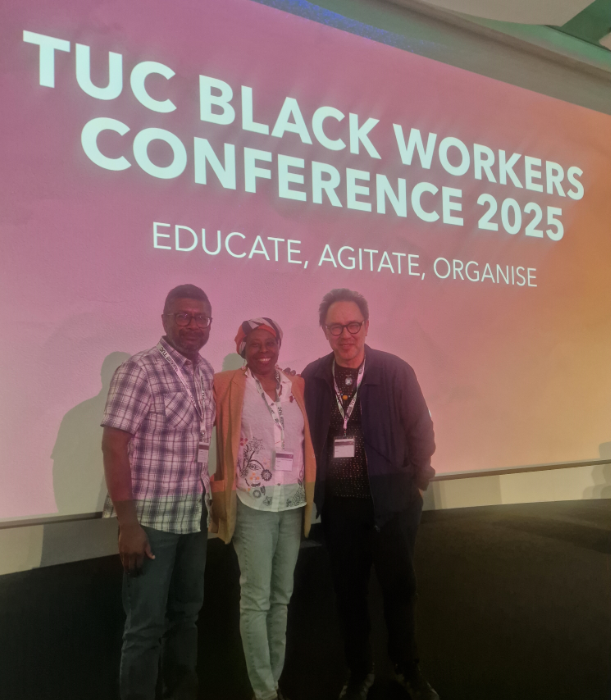- Our analysis of new Office of National Statistics GDP data shows a worrying decline in the creative arts and entertainment industry, which has shrunk by 15% since the Labour government took office in July 2024.
- The data shows an average reduction of 3.7% a month in business activity over the four-month period. In October, the industry shrunk by nearly 5% in one month.
- This is the first time these sectors have seen four consecutive months of decline since the pandemic lockdowns began in March 2020.
- Urgent investment in the arts and entertainment is necessary. We are calling for the government to set out a roadmap to reach the European average of investing 0.5% of GDP in the arts, entertainment and culture.
Our analysis of last Friday’s GDP figures shows rapid and significant shrinking of the arts and entertainment industries since Labour took office, with an average monthly decline of 3.7% and the worst month-on-month decline since the Covid pandemic of 2020. Our research reveals that this reduction in the creative sector totals -15% since Labour took office and is driving the decline in the wider bracket of arts and recreation, which fell by 2% in October.
We are calling for urgent action by the government to understand and address the decline and for the government to set out a roadmap to reach the European average of investing 0.5% of GDP in the arts, entertainment and culture. In the meantime, we will not hold back in our industrial claims for improved pay and conditions for the creative workforce.
The monthly data released by the Office for National Statistics (ONS) showed the economy contracting by 0.1% overall. The category of Arts and Recreation (which includes four subsectors - gambling, sports, arts, libraries) showed a 2% decline in this period.
Further analysis of the detailed data shows that the creative arts and entertainment subsector, which includes the performing arts, support activities, artistic creation and arts facilities, experienced a decline of -4.6% in October and has been averaging -3.7% a month since Labour took office in July 2024, meaning the creative arts and entertainment are driving the 2% shrinking of the wider category of Arts and Recreation.
ONS data shows the monthly changes to activity in the creative arts and entertainment subsector activity since July 2024 as follows:
2024 JUL -4.1
2024 AUG -1.6
2024 SEP -4.5
2024 OCT -4.6
The shrinking of activity in arts and entertainment sectors shows a cumulative decline of nearly 15%, or -3.7% monthly average, since Labour took office.
We want to see action to ensure sustainable and growing arts and entertainment industries in 2025, pointing to the significant economic benefits brought to the wider economy.
Commenting Paul W. Fleming, Equity general secretary, said: “The rapid and significant shrinking of the arts and entertainment industries since Labour took office is alarming. Government must take urgent action to understand and address this fall happening on their watch set out a roadmap to reach the European average of investing 0.5% of GDP in the arts. But Equity will not be waiting for government – our claims for better pay, conditions and investment for our members will deliver the improvements creative workers need.
“Investment in arts jobs and infrastructure, which focuses on the significant economic benefits that UK film, TV, live performance and productions bring to the whole country, will pay dividends. Across the UK we’re seeing mixed responses, with Holyrood making a welcome Budget investment, but Wales not reversing significant arts cuts, and Stormont making their decisions early next year. With creative industries rightly identified as ‘growth driving’ sectors by the government, that’s just not good enough.
“Irrespective of the trends in the GDP data, the union will not be holding back on significant, but justified improvements in pay, terms, and conditions. Our members can’t wait for a serious industrial strategy from government – the only one of their key areas which has had no extra money committed to it.
“With AI threatening creative jobs, government must take action to boost our creative industries, ensuring well paid jobs exist in a thriving UK arts and entertainment sector which benefits the wider economy.”
Last week, we expressed disappointment at the limited funding available to the arts in the Welsh government’s draft budget, which did little to redress funding cuts of 40% over the last decade. In contrast, Holyrood’s budget on 4 December provided “welcome relief” in relation to arts funding. Northern Ireland will present its budget in February 2025 and we are calling for an end to arts cuts.
Investment in arts and entertainment jobs and infrastructure will pay dividends. The arts perform a multiplier effect on the economy, with research by Arts Council England showing that for every £1 of turnover directly generated by the arts and culture industry, an additional £1.23 worth of turnover is supported in the wider economy.




